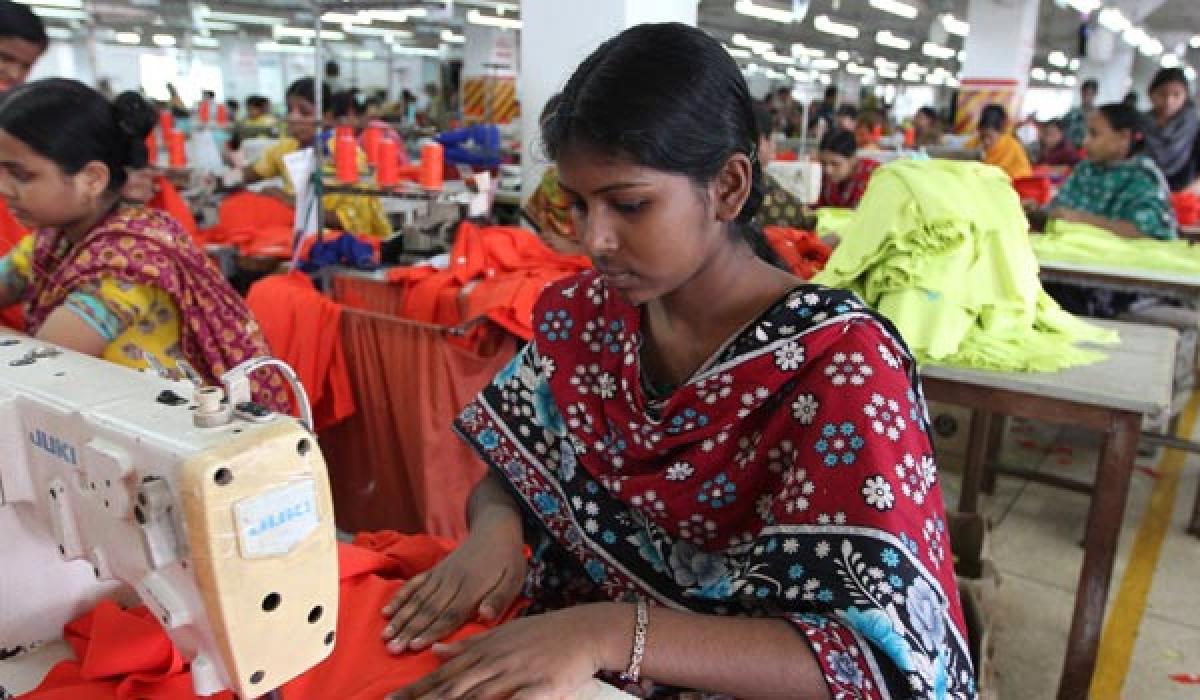Live
- Collectorate staff protest attack on DC
- Villagers urge authorities to continue launch service even after construction of bridge
- MLA Padmavathi launches free lunch for readers
- Police high-handedness sparks outrage in Kodangal
- Khichi elected mayor of Delhi
- Sports enthusiasts encouraged to focus on achieving their goals
- SC agrees to hear plea related to Delhi pollution
- Srikakulam: Cooperative Week celebrations take off
- National Library Week celebrations begin
- Bringing joy to MPP schoolchildren
Just In

As part of helping labour law reforms, the government will bear 3.67% of employer’s EPF contribution for new workmen in addition to existing reimbursement of 8.33% employer contribution under Pradhan Mantri Rojgar Protsahan Yojana for 3 years.
The Central government has announced a special package of Rs 6,000 crores for boosting the employment generation and export potential of the Textile and Apparel Sector.
As part of helping labour law reforms, the government will bear 3.67% of employer’s EPF contribution for new workmen in addition to existing reimbursement of 8.33% employer contribution under Pradhan Mantri Rojgar Protsahan Yojana for 3 years.
EPF will be made optional for employees earning less than Rs 15,000 per month; thus, leaving more money in the hands of the workers. c) Overtime cap will be raised from 50 hours per quarter to 100 hours per quarter leading to increased earnings of workers. Considering the seasonal nature of the industry, fixed term employment will be introduced for the garment sector.
The subsidy provided to garmenting units, under Amended-TUFS, is being increased from 15% to 25%, providing a boost to employment generation. The package breaks new ground in moving from input-based to outcome-based incentives; a unique feature of the scheme will be to disburse subsidy only after expected jobs have been created.
In a first-of-its-kind move, a new scheme will be introduced to refund the state levies which were not refunded so far. Looking at the seasonal nature of garment industry, the provision of 240 days under Section 80JJAA of Income Tax Act would be relaxed to 150 days for garment industry.
The expected impact of the special package in next three years: The new package is expected to boost up employment generation; More and more garment units will become compliant with respect to statutory dues and more jobs will be generated in formal sector;
Pro labour reforms like optional EPF, increased overtime limits and fixed term employment will lead to more cash in hand with workers, provide opportunity to earn more and put fixed term workers at par with permanent workers in terms of working hours, wages, allowances and other statutory dues respectively.
The special package will boost the textile and apparel sector by making larger manufacturing set-ups feasible thereby leading to economies of scale in the sector.
It will also improve the attractiveness of garment manufacturing for new investments and exports. The current investment in the sector which is growing at 8% year on year is expected to grow substantially in next three years.

© 2024 Hyderabad Media House Limited/The Hans India. All rights reserved. Powered by hocalwire.com







